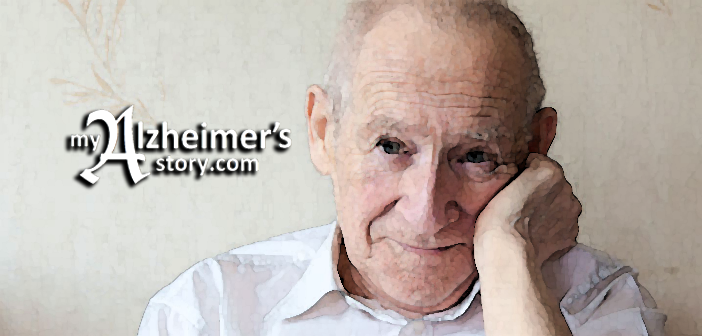
“The elders in our lives teach us so much and I just keep trying to pay attention,” wrote Sonya Barsness in reply to my comment on her blog post entitled “Resilience.”
Barsness calls herself a “revisionist gerontologist.” Like me, she believes we need to change the paradigms surrounding aging and dementia. Her work revolves around “promoting and applying a paradigm shift to everything we do WITH people growing older and growing with dementia.”
I’m an avid reader of her blog “Being Heard,” and was blown away by the post on resilience. After I read it, I commented:
“This post is breathtaking Sonya. It puts into words what I observed being with my mom during the last five years of her life while she lived with dementia. I called it strength. “You are so strong, Mom,” I would say to her. Or, “You are so brave, Mom.” Yes, she was strong, and yes, she was brave. But you are dead right about resilience. Above all, Mom was resilient beyond belief. Thank you for reframing it so eloquently.”
I extracted these seven powerful thoughts from the post to whet your appetite:
1) We often use the term “frail” to describe elders. Yet, it does not properly acknowledge the resilience that older people show on a regular basis, in various ways.
2) …people living in nursing homes, people living with dementia, people who are not 98-year old weightlifters are also resilient, [although it could be in a way we might not easily see].
3) Elders are experts at being resilient. Perhaps this is true by the very nature of acquiring more life experiences through growing older – there simply are more opportunities to be resilient. Perhaps it is also due to the unique challenges and opportunities in “being old” that encourages resilience.
4) [Consider] the resilience of the present: how a person shows up every day. Perhaps elders are particularly resilient because of what they have experienced, as well as resilient for what they are experiencing now, and will experience [in the future].
5) Could their resilience be in each breath they take, in how they are living in the world, yet leaving it? Could their resilience be in their gifts to us about the fragility of life, and the reality of death?
6) There is resilience in living with the cognitive changes of dementia. As a person sees the world differently through the experience of dementia, they try to make sense of it. They are problem-solvers, rather than how we often label them as problem-makers.
7) Through their courage and resilience elders [and people living with dementia] are revealing to us how to navigate some of the most fundamental and pure human experiences.
I encourage you to read the whole post here. You may also wish to read the inspiring posts below.
Subscribe to MAS now & get 5 free PDFs & a page of welcome links:
//s3.amazonaws.com/downloads.mailchimp.com/js/mc-validate.js(function($) {window.fnames = new Array(); window.ftypes = new Array();fnames[0]=’EMAIL’;ftypes[0]=’email’;fnames[1]=’FNAME’;ftypes[1]=’text’;fnames[2]=’LNAME’;ftypes[2]=’text’;}(jQuery));var $mcj = jQuery.noConflict(true);










 black. “Maybe she can’t figure out where the seat is because the colour,” I thought to myself. Then I had an “Aha!” moment.
black. “Maybe she can’t figure out where the seat is because the colour,” I thought to myself. Then I had an “Aha!” moment.
